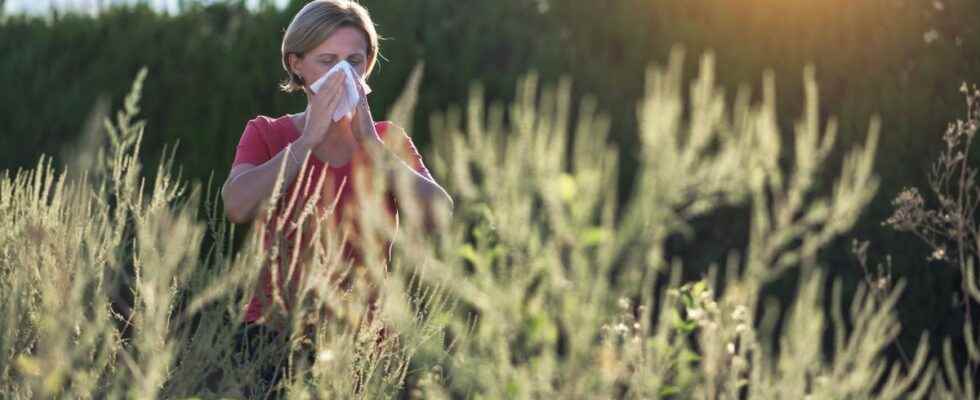Published on 05/27/2022 at 7:11 p.m.,
Reading 2 mins.
The risk of grass pollen allergy is very high in almost all of France, and will remain so for several weeks, according to the National Aerobiological Surveillance Network.
The risk of grass allergy is highest across the country, according to the National Aerobiological Surveillance Network (RNSA). On the map of the risk of allergy to the body’s pollens, all the departments are in red (high risk of allergy), except two of them: Landes and Pyrénées-Atlantiques (medium risk).
On the social network Twitter, the RNSA warns: “While many French people will bridge the Ascension this week with traffic announced in black on the roads by smart bison, in terms of pollen, the grasses do not make the bridge and will remain present in the air! ”.
Grasses don’t bridge!
While many French people will bridge the Ascension this week with traffic announced in black on the roads by smart bison, in terms of pollen, grasses do not make the bridge and will remain present in the air! pic.twitter.com/gXJzQV3iPY— National Aerobiological Surveillance Network (@rnsa_pollen) May 25, 2022
A situation that is likely to last
The RNSA is sounding the alarm on its site: the situation is likely to persist if the weather conditions remain unchanged.
Indeed, the sunny weather and the temperatures announced for the next few days are very favorable to the emission and dispersion of high concentrations of grass pollen in the air.
“From the beginning of May to the end of July, we should therefore find grass pollen present throughout France. Only rain showers can bring some respite to allergy sufferers by placing pollen on the ground, but they will also promote the growth of grasses which will release more pollen as soon as the sun returns!”, warns the body.
You can consult the modeling maps herewhich tells you the grass pollination forecast for the next few days.
What to do to limit pollen allergies
“During this period, episodes of air pollution can exacerbate the symptoms of allergies. Allergies must follow their treatment and prepare for complicated weeks”, alerts the RNSA. Here are some recommendations to apply.
- Monitor the regularly published pollen calendars on the RNSA ;
- Take a shower, and in particular wash your hair, and change your clothes after going out in nature in order to eliminate as much pollen as possible;
- If the car has air conditioning, use recycled air or drive with the windows closed;
- In the house, leave the windows closed when it is windy and the weather is dry, or even get an air purifier equipped with a HEPA filter to eliminate pollen grains and irritating particles present in the air. ‘environment ;
- Place anti-pollen filters on windows;
- Wear a mask and sunglasses;
- Ventilate your interior for 10 minutes a day, morning and evening.
Consult an allergist online
What you should not do
- Walk in dry, sunny and windy weather in high-risk areas;
- Dry clothes outside, go out with wet hair because pollen settles on damp areas.

